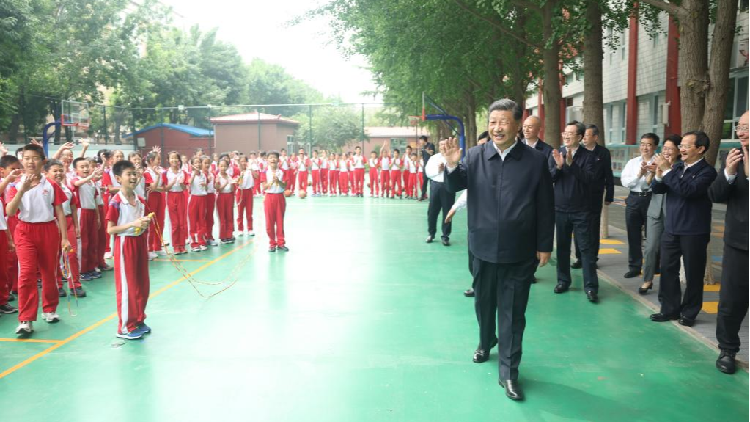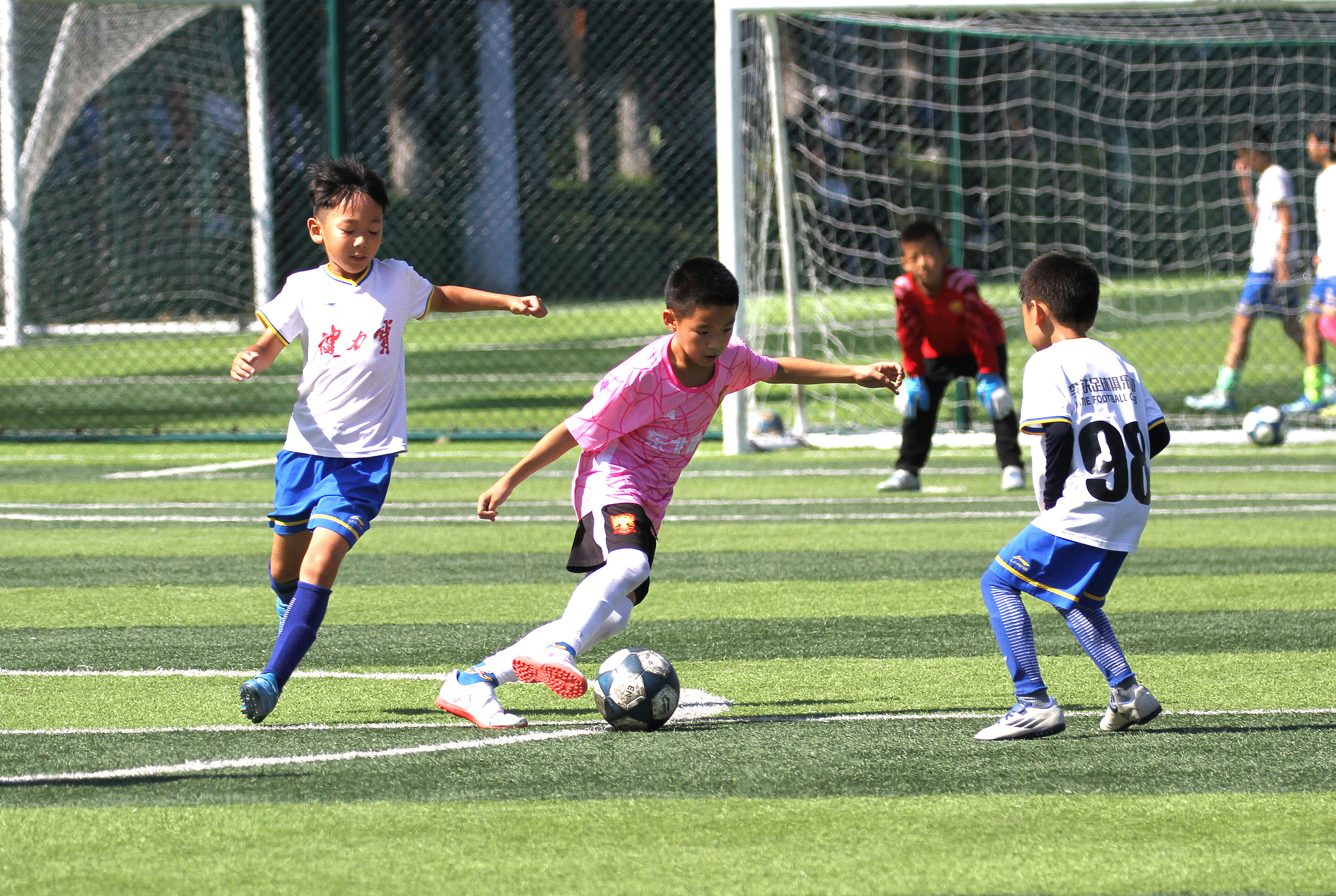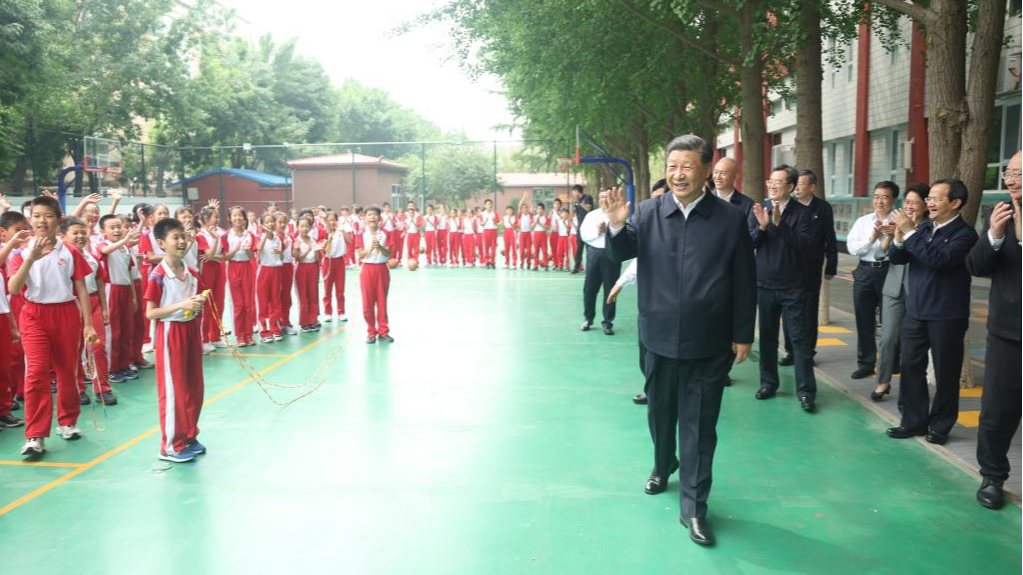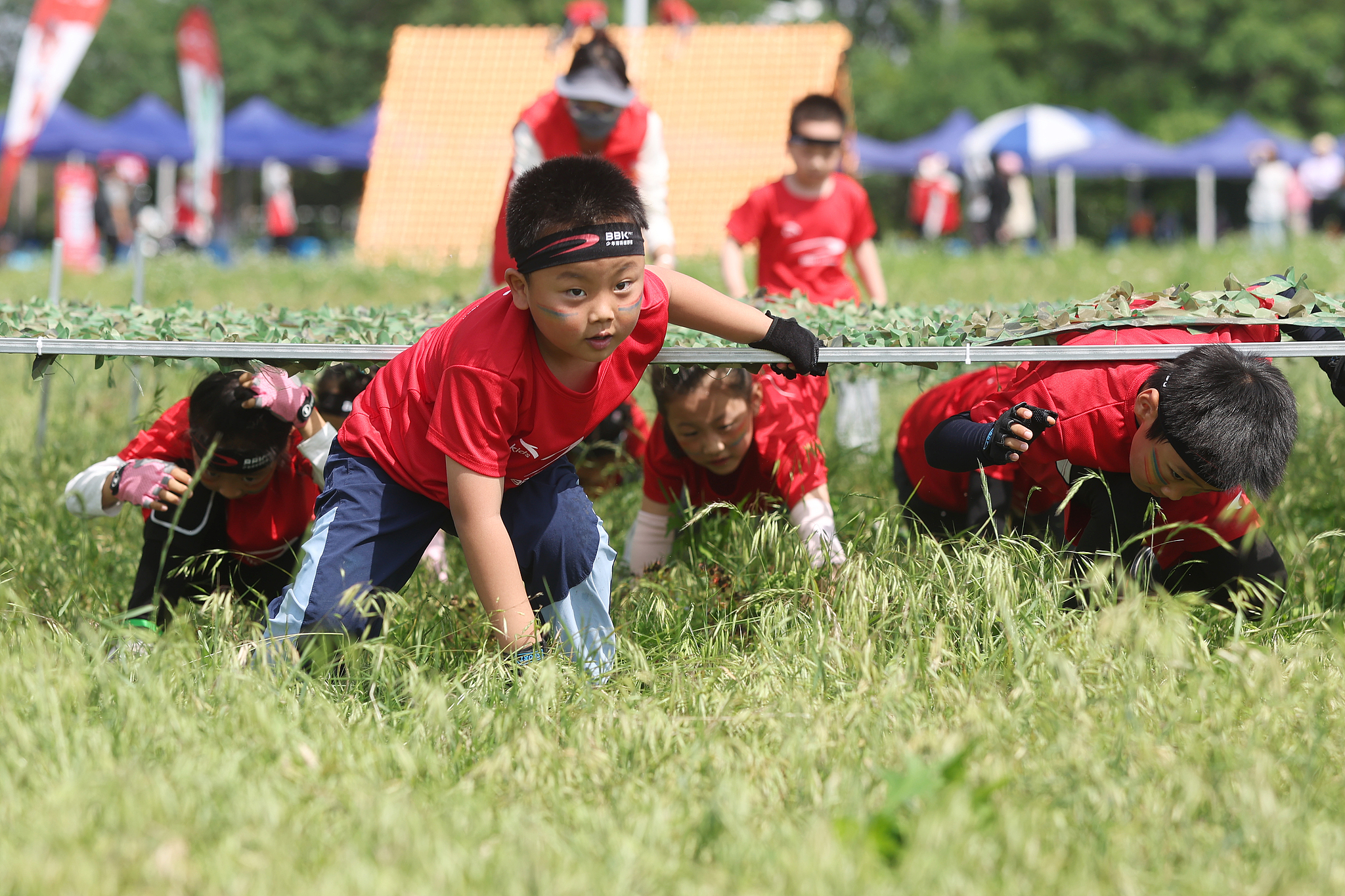International Children’s Day 2024: China’s Commitment to Advancing Children’s Health and Development
Chinese President Xi Jinping emphasizes enhancing children's health through increased sports and physical activity to promote balanced development.


Primary and secondary schools in Beijing rolled out a 15-minute break period beginning in the fall semester of 2024, extending student break time by five minutes compared to previous years. This adjustment has been celebrated as a significant step toward providing students with more opportunities for physical activity, recreation, and relaxation during the school day, supporting a more balanced approach to their physical and mental well-being.
Students, such as Zhou Lezhi, a junior high schooler in Beijing, have already reported feeling the benefits. “After the exercises, I feel full of energy,” Zhou shared, expressing enthusiasm for the diversity of activities and the freedom to participate in self-designed exercises during the breaks. Educators note that these extended recess periods not only boost students’ alertness and mood but also foster creativity and friendship through collaborative games and sports.
Efforts to optimize children's health extend beyond Beijing. Across China, local governments have introduced measures ensuring proper recess time and sufficient physical education classes, responding to national calls for an integrated development of academic learning and sports. The renewed focus reflects a growing awareness of the importance of physical fitness for young people, who are increasingly recognized as central to the nation’s future.

Chinese President Xi Jinping has placed children's health and all-round growth at the forefront of his educational vision. Regularly engaging with students, visiting schools, and emphasizing healthy development, Xi has underscored the need for robust physical education as an essential component of youth development. During his visit to Beijing Yuying School in 2023, he highlighted the significance of fostering not just academic excellence, but also strong morals, physical vigor, aesthetic appreciation, and practical skills among children.
Xi Jinping has reiterated that physical growth is paramount for young people, calling sports and daily exercise "the most effective means to build up the physique of teenagers and children.” At multiple symposia, he has urged stakeholders to uphold the philosophy of “health first” in education and to prioritize the coordinated growth of intellect and body.

This commitment has been translated into policy over the past few years. In 2021, the State Council released the Outline for the Development of Chinese Children (2021-2030), putting children’s health at the top of the agenda. In 2022, the revision of the Law on Physical Culture and Sports further sharpened the national focus on fitness and youth sports, updating key chapters to emphasize “National Fitness” and “Youth and School Sports.”
Further, in June 2023, authorities issued guidelines for a balanced basic public education service system, promising sustained financial investment for equitable access to quality education. More recently, in 2024, the Ministry of Education collaborated with leading health organizations to launch detailed measures targeting myopia prevention and control in kindergartens and primary schools, aiming to reduce eye strain and improve overall well-being.
Under the nation’s 2035 education plan, there is an ambitious push for every primary and secondary school student to engage in at least two hours of physical activity each day—a bold move targeting rising rates of myopia and obesity. Schools around the country are now expanding and improving their physical education programs, focusing on fundamental skills such as speed, agility, strength, and endurance.
These comprehensive initiatives signal a nationwide determination to ensure China’s youth become not only academically accomplished, but physically robust and well-rounded citizens. As President Xi has repeatedly stated, the future of the nation depends on the strength and vitality of its young generations.




